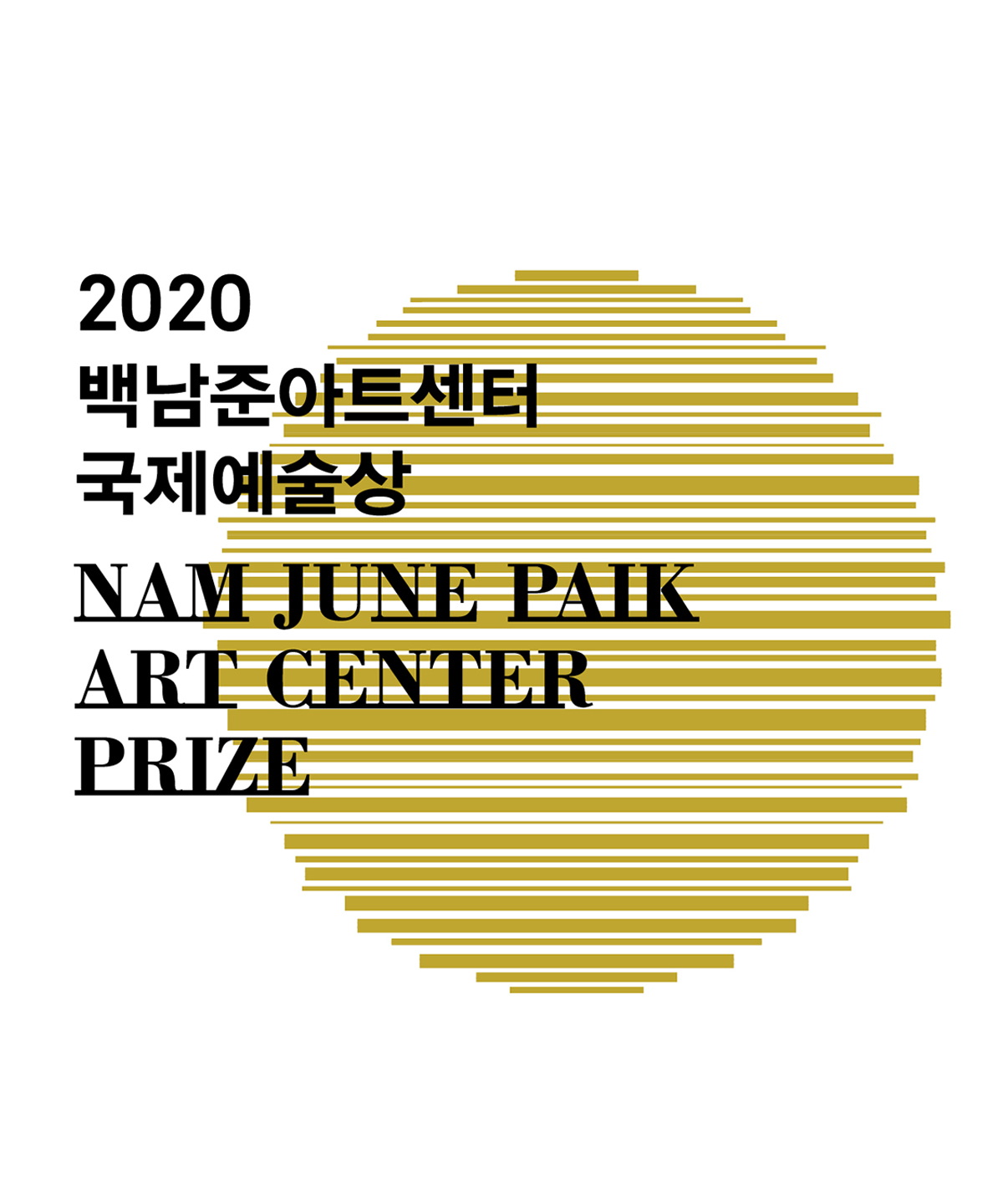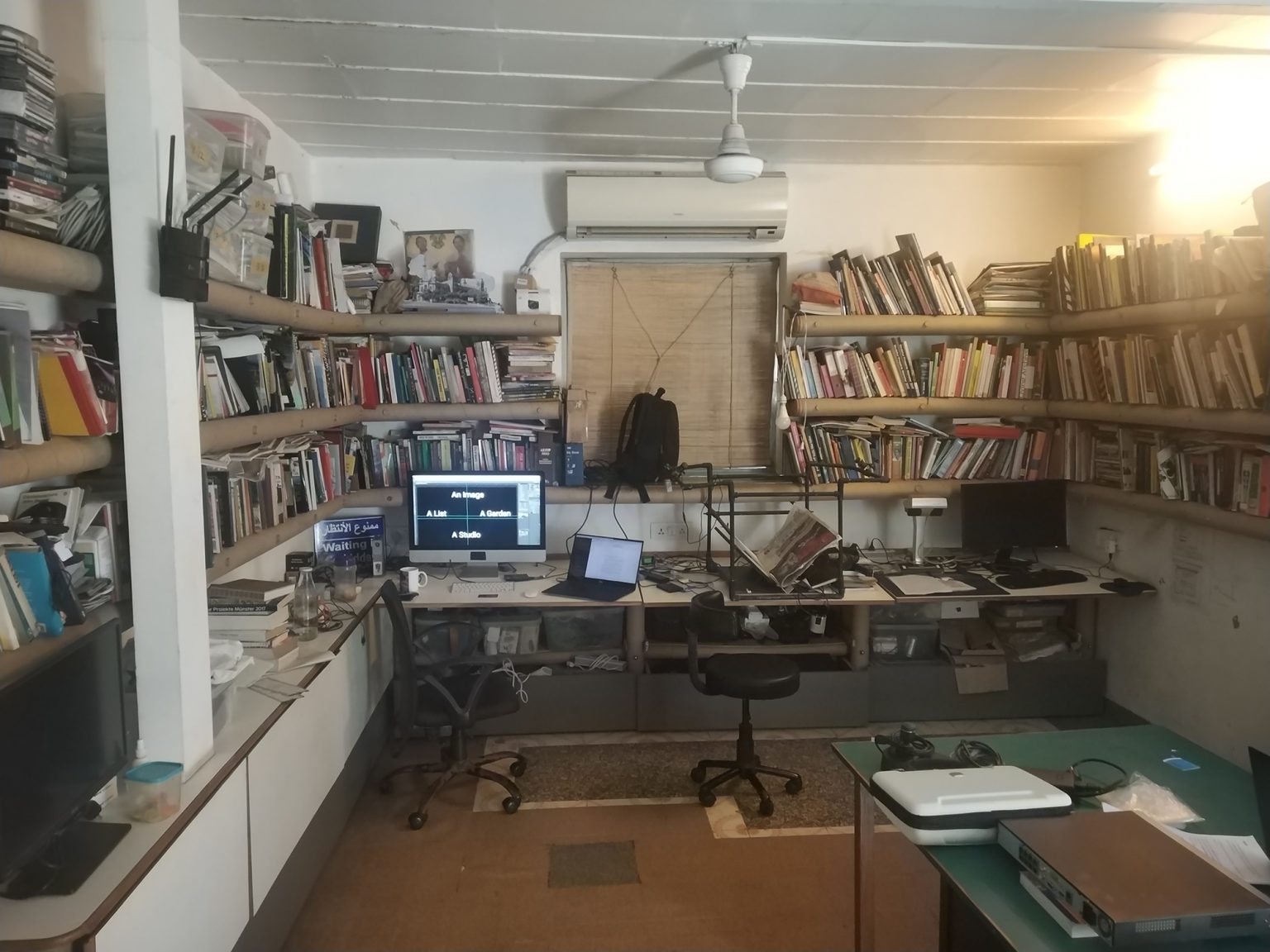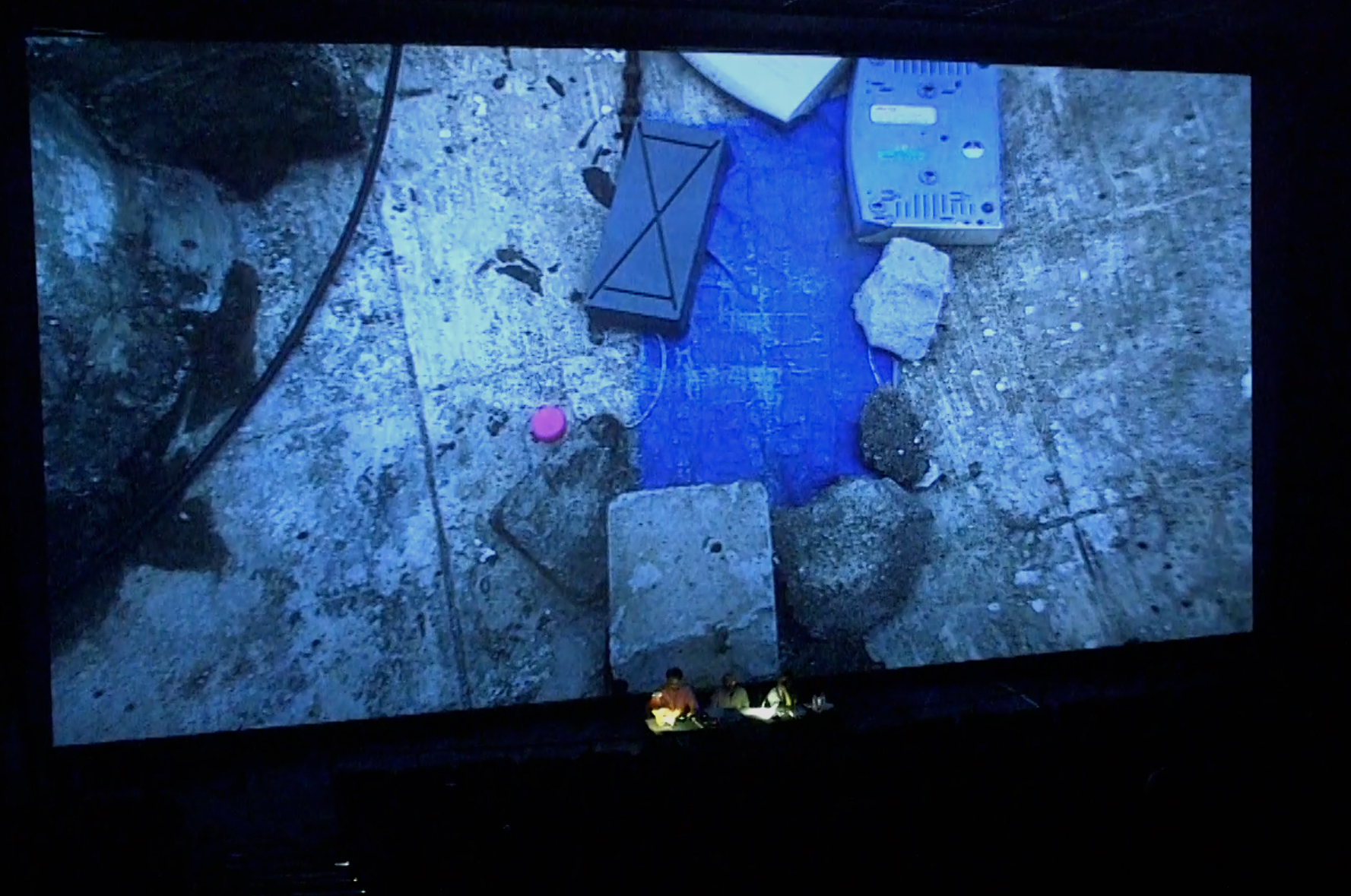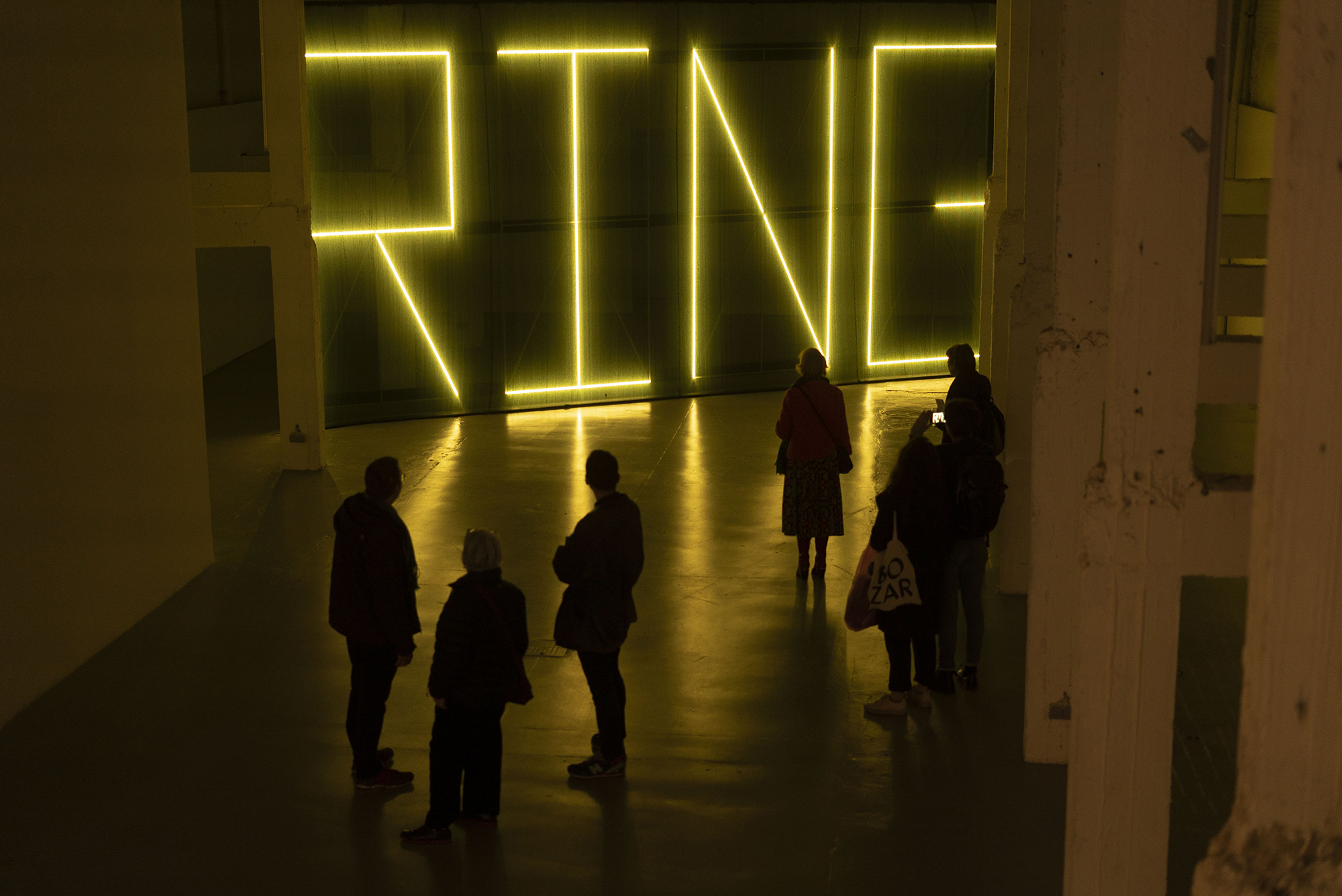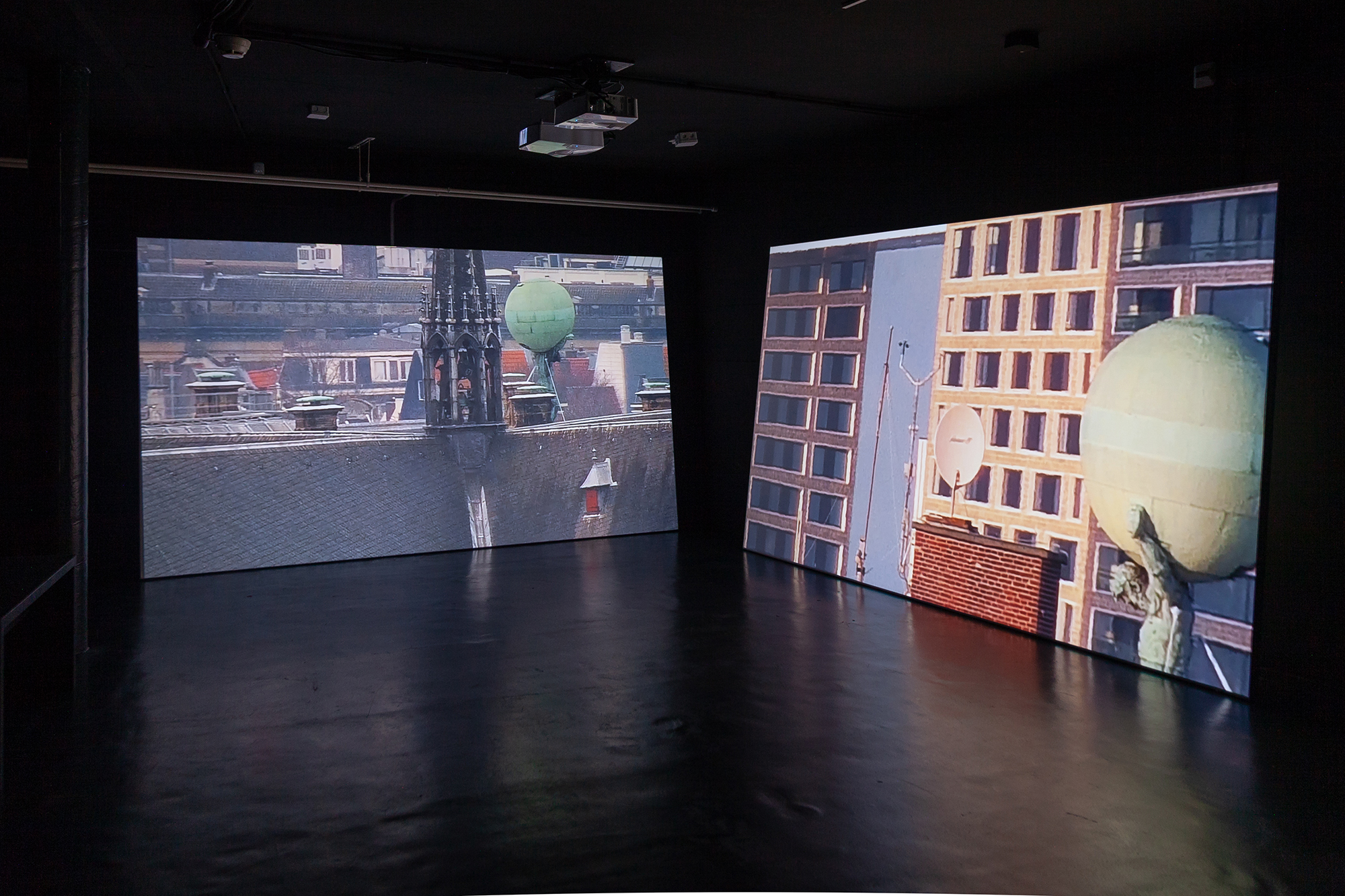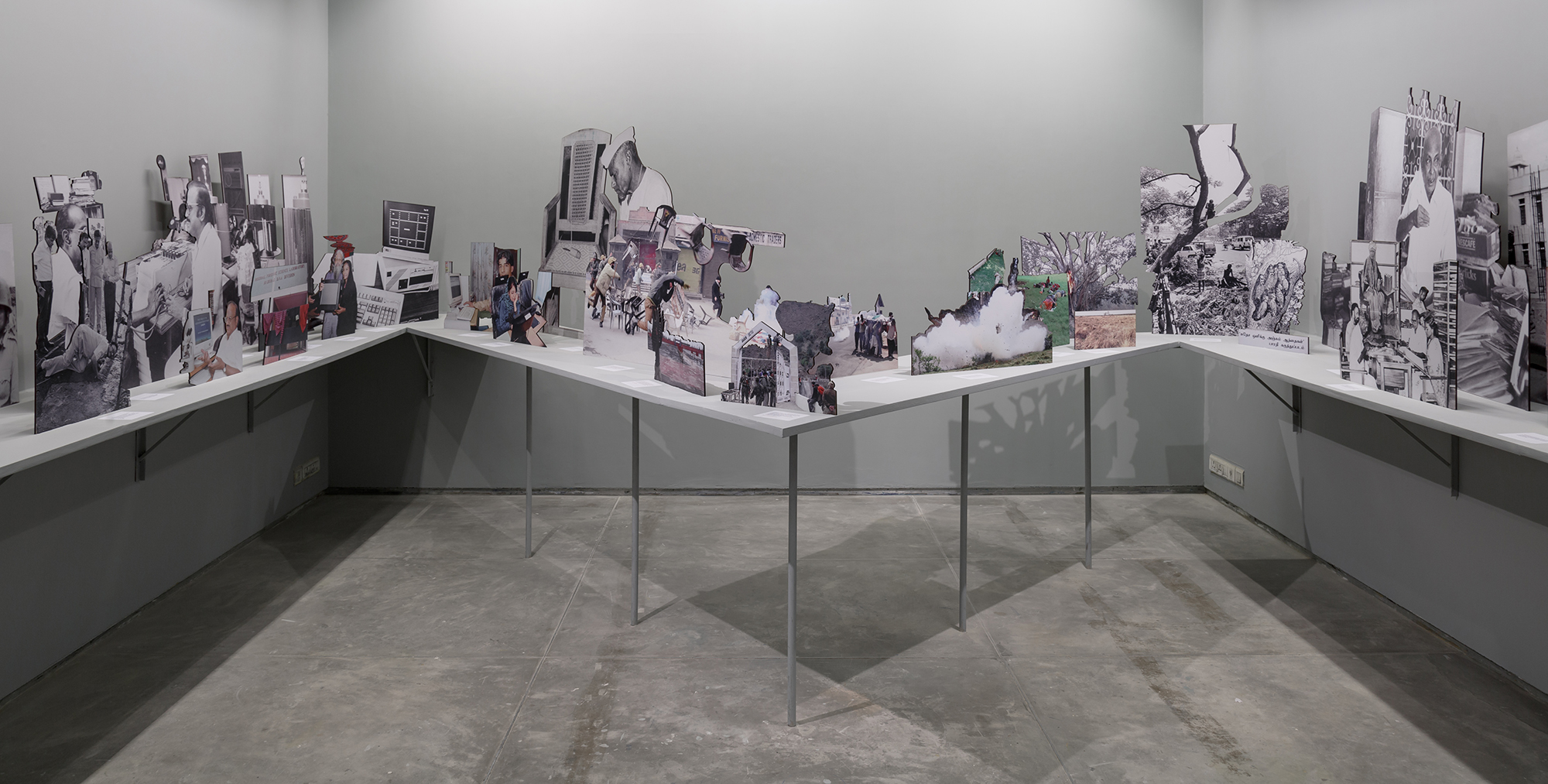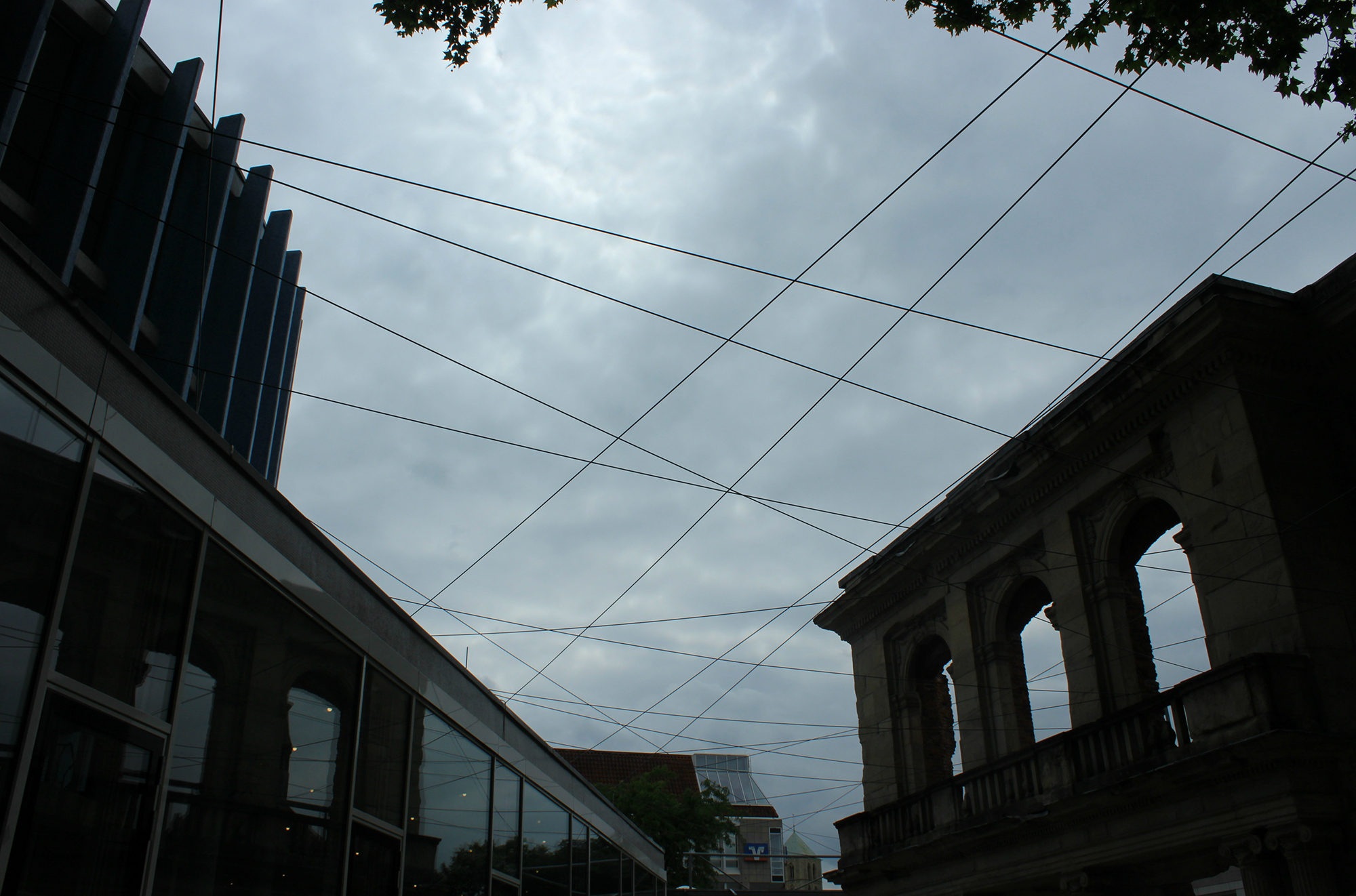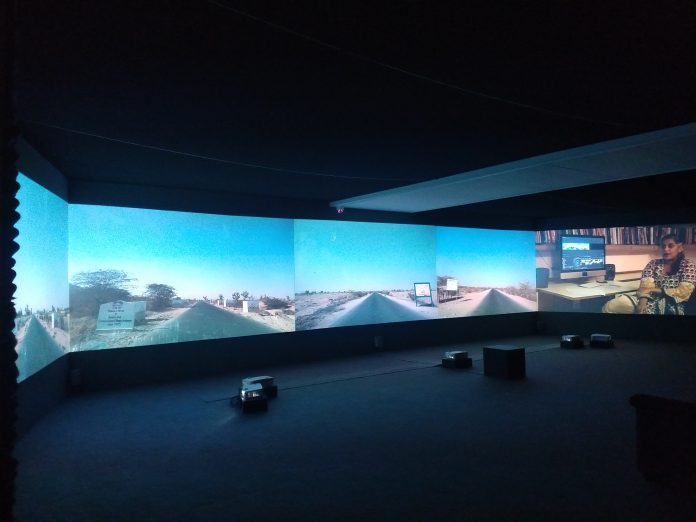Nam June Paik Art Center is pleased to announce that the jury has selected CAMP (Mumbai) as the winner of the Nam June Paik Art Center Prize 2020. CAMP is a collaborative studio founded in 2007 by Shaina Anand, Ashok Sukumaran and Sanjay Bhangar. CAMP works with film, video, electronic media and public art forms, exploring various media technologies through research, infrastructural interventions, presentation, and documentation.
Zoe Butt, Artist Director of the Factory Contemporary Arts Center, Ho Chi Minh City, and a member of the nomination committee, explains that “CAMP is a site and nexus of rethinking strategies of survival with hands-on technological experimentation.” Her recommendation comes from her understanding that “their commitment to the idea of art as a social sphere of questioning, to which collaboration and exchange is crucial to the challenge of hegemony and its tools, is not only present in their methodologies of making, but also in their critical neighborliness which embraces openness to all forms of consciousness.”
Dieter Daniels, Professor of HGB Leipzig and the chairperson of the jury, was drawn to CAMP for their “process-oriented and open-ended” way as seen in Paik’s ideas such as Global Groove or Random Access Information. They “develop low-threshold participatory concepts in a wide range of ‘media’ such as electricity, transport and surveillance systems, archives, cinema, video, radio, and the internet.” He suggests that their “interventions in the public domain allow for open access,” mounting resistance against “the power of globalized capital.”
The NJP Art Center Director Kim Seong Eun, who served on the jury, accentuates CAMP’s “corporeal approach of getting into the thick of things and people in a time when words such as ‘participatory’ or ‘relational’ are losing momentum.” CAMP’s work, by “reconfiguring the concept of publicness and commons against the muscles of neoliberalism,” Kim adds, “is of particular import and relevance given the shifting horizons of network media culture in the face of the pandemic.” The jury members uniformly believe that with CAMP’s selection, Nam June Paik Art Center Prize has further crystalized the characteristics of its pedigree.
The first Nam June Paik Art Center Prize was awarded in 2009 to four artists, Ahn Eun-Me, Ceal Floyer, Lee Seung-Taek, and Robert Adrian X. Philosopher Bruno Latour won in 2010, followed by artists Doug Aitken in 2012, Haroon Mirza in 2014, Blast Theory in 2016, and Trevor Paglen in 2018.
The prize ceremony this year will be held online in November 20, along with related events. CAMP, as the winner, will be awarded a prize of KRW50,000,000, and their solo exhibition will be organized by Nam June Paik Art Center in 2021.
■ Nomination Committee
Bae Myungji (Curator, Performance and Video, MMCA Korea)
Natalie Bell (Curator, MIT List Visual Art Center, Cambridge MA)
Zoe Butt (Artistic Director, The Factory Contemporary Arts Centre, Ho Chi Minh City)
Cho Seon Ryeong (Professor, Art Culture and Image, Pusan National University)
Stuart Comer (Chief Curator, Media and Performance, MoMA New York)
Michel Van Dartel (Director, V2 Institute for the Unstable Media, Rotterdam)
Patrick D. Flores (Curator, Jorge B. Vargas Museum, and Professor, Art Studies, The University of the Philippines, Manila)
Anselm Franke (Head of Visual Arts and Film, Haus der Kulturen der Welt, Berlin)
Curatorial Team, Nam June Paik Art Center
■ Jury
Beck Jee-sook (Director, Seoul Museum of Art)
Daniel Birnbaum (Director, Acute Art)
Dieter Daniels (Professor, Art History and Media Theory, Hochschule für Grafik und Buchkunst Leipzig)
Kim Seong Eun (Director, Nam June Paik Art Center)
Eugene Tan (Director, National Gallery Singapore and Singapore Art Museum).
■ CAMP
CAMP is a Mumbai-based collaborative studio. It has been producing provocative new works in a practice characterized by a hand-dirtying, non-alienated relation to technology. CAMP’s projects have entered many modern social and technical assemblies: energy, communication, transport and surveillance systems, ports, ships, archives – things much larger than itself. These are shown as unstable, leaky, and contestable “technology,” in the ultimate sense of not having a fixed-function or destiny, making them both a medium and stage for artistic activity.
CAMP’s work has been shown in global venues, as well as India, including MoMA New York, Tate Modern, Serpentine Galleries, HKW Berlin, Ars Electronica, Anthology Film Archives, Sharjah Biennial, Kassel documenta and Skulptur Projekte Münster, and also in the streets and markets of cities around the world. From their home base in Chuim village, Mumbai, they co-host the online archives Pad.ma and Indiancine.ma, and run a rooftop cinema for the past 14 years.





